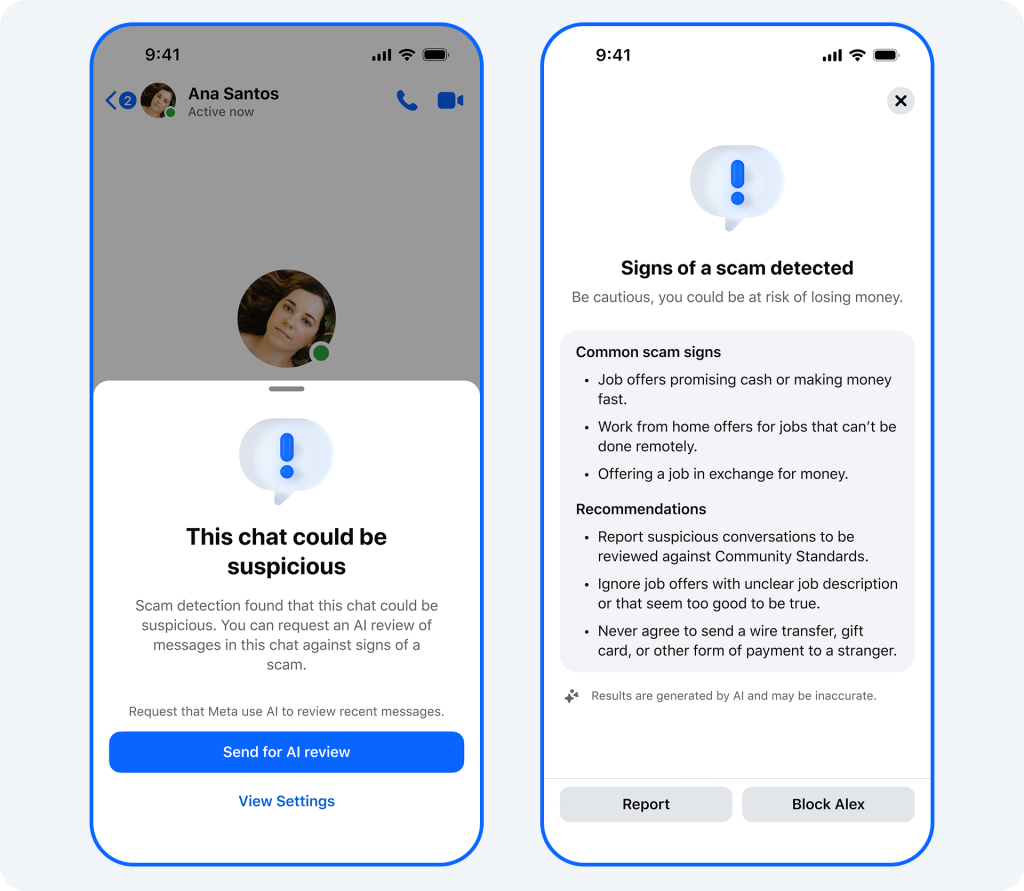
Meta has introduced new scam detection features for WhatsApp and Messenger as part of its broader initiative to protect older adults from online fraud.
The updates, announced on Tuesday, include screen-sharing warnings in WhatsApp and automated scam detection alerts in Messenger, both designed to reduce the spread of social engineering and financial scams.
On WhatsApp, Meta will now display a warning when users attempt to share their screen with unknown contacts during video calls. The company said this scam tactic is commonly used to trick victims into revealing sensitive details such as banking credentials or verification codes. The new prompt aims to stop such attacks before users unintentionally expose personal data.

On Messenger, Meta is testing new AI-powered scam detection tools that analyze incoming messages for signs of fraud. When potential scams are detected, users will see a warning reading: “Be cautious, you could be at risk of losing money.” The system also lists common scam techniques, including fake job offers and “easy cash” schemes, and encourages users to block or report suspicious accounts.

According to Meta, it has detected and disrupted around 8 million accounts engaged in scam operations during the first half of 2025. Many of these were tied to organized scam centers operating from Myanmar, Laos, Cambodia, the United Arab Emirates, and the Philippines. The company also removed over 21,000 Facebook Pages and accounts impersonating customer support representatives attempting to harvest personal information.
The company said fraudulent “support” accounts are so widespread that many legitimate Page operators have learned to ignore unsolicited messages claiming to be from customer service.
Scams Targeting Older Adults Persist
Meta’s new measures are designed to counter scam networks targeting older people across multiple platforms — including messaging and dating apps, as well as cryptocurrency channels. Such schemes often rely on social manipulation or romantic pretense, exploiting loneliness, trust, or cognitive decline to convince victims to share savings or personal data.
Family members often become involved once financial or emotional harm becomes apparent, which can lead to embarrassment or denial among victims who believe the scam to be legitimate.
Meta said it is also joining the National Elder Fraud Coordination Center, a nonprofit group that brings together law enforcement and major corporations, including AARP, Amazon, Capital One, Google, Microsoft, and Walmart, to coordinate anti-fraud initiatives targeting scams that exploit older adults.
The company noted that it has previously added context cards, reminders, and warnings about various scam types, such as shipping and payment frauds, and promoted safety education through its WhatsApp Safety Center and Valentine’s Day romance scam alerts, though these earlier efforts were not specifically aimed at elderly users.
Featured image credits: demaerre via Getty Images/iStockphoto
For more stories like it, click the +Follow button at the top of this page to follow us.
